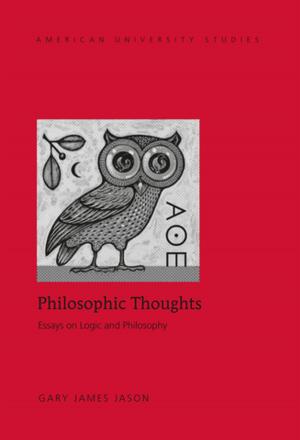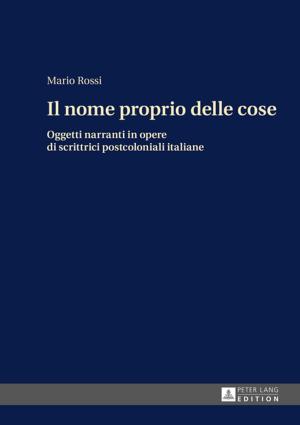Lord Lothian: The Paths of Federalism
Writings and speeches
Nonfiction, History, European General, British| Author: | Claudio G. Anta | ISBN: | 9783035296785 |
| Publisher: | Peter Lang | Publication: | April 28, 2014 |
| Imprint: | Peter Lang AG, Internationaler Verlag der Wissenschaften | Language: | English |
| Author: | Claudio G. Anta |
| ISBN: | 9783035296785 |
| Publisher: | Peter Lang |
| Publication: | April 28, 2014 |
| Imprint: | Peter Lang AG, Internationaler Verlag der Wissenschaften |
| Language: | English |
Lord Lothian (Philip Kerr, 1882-1940) was one of the leading exponents of British federalism between the Two World Wars. His federalism was linked to the tradition of Kantian and Hamiltonian thought while simultaneously going beyond this tradition. In the aftermath of the Treaty of Versailles, which saw the Old Continent divided into nation-states as holders of absolute sovereignty, he identified the value of peace in the model of the federal State. This was not, as in the case of the Americans, the pragmatic scheme of constitutionalists imposed upon by their historical circumstances, but the general principle of a State organisation geared towards lasting peace in international relations, first in Europe and then worldwide. At the first signs of crisis within the British Empire, Lothian also consistently advocates the political unity of the English-speaking peoples as the nucleus of a world federation able to institutionalise inter-state conflicts and overcome them through legal means.
The anthology contained in this essay includes twenty writings and speeches by Lothian and is divided into two sections. The first traces his original political-ideological path: from his long collaboration with the magazine «The Round Table», which has its roots in his initial South African experience within the «Kindergarten», to his speeches held at Chatham House in London in November 1928 and at the Institut für Auswärtige Politik of Hamburg in October 1929; it also covers the years he spent as Private Secretary to the British Prime Minister, David Lloyd George. The second section focuses on his best-known writings, dating back to the second half of the 1930s – namely Pacifism is not Enough, National Sovereignty and Peace and The Demonic Influence of National Sovereignty – ending with some addresses he delivered as British Ambassador to Washington. In addition there are some significant letters that are part of the extensive correspondence Lothian had with statesmen and federalist intellectuals (Lloyd George, Winston Churchill, Lionel Curtis and Anthony Eden), which enrich the entire collection.
Lord Lothian (Philip Kerr, 1882-1940) was one of the leading exponents of British federalism between the Two World Wars. His federalism was linked to the tradition of Kantian and Hamiltonian thought while simultaneously going beyond this tradition. In the aftermath of the Treaty of Versailles, which saw the Old Continent divided into nation-states as holders of absolute sovereignty, he identified the value of peace in the model of the federal State. This was not, as in the case of the Americans, the pragmatic scheme of constitutionalists imposed upon by their historical circumstances, but the general principle of a State organisation geared towards lasting peace in international relations, first in Europe and then worldwide. At the first signs of crisis within the British Empire, Lothian also consistently advocates the political unity of the English-speaking peoples as the nucleus of a world federation able to institutionalise inter-state conflicts and overcome them through legal means.
The anthology contained in this essay includes twenty writings and speeches by Lothian and is divided into two sections. The first traces his original political-ideological path: from his long collaboration with the magazine «The Round Table», which has its roots in his initial South African experience within the «Kindergarten», to his speeches held at Chatham House in London in November 1928 and at the Institut für Auswärtige Politik of Hamburg in October 1929; it also covers the years he spent as Private Secretary to the British Prime Minister, David Lloyd George. The second section focuses on his best-known writings, dating back to the second half of the 1930s – namely Pacifism is not Enough, National Sovereignty and Peace and The Demonic Influence of National Sovereignty – ending with some addresses he delivered as British Ambassador to Washington. In addition there are some significant letters that are part of the extensive correspondence Lothian had with statesmen and federalist intellectuals (Lloyd George, Winston Churchill, Lionel Curtis and Anthony Eden), which enrich the entire collection.















